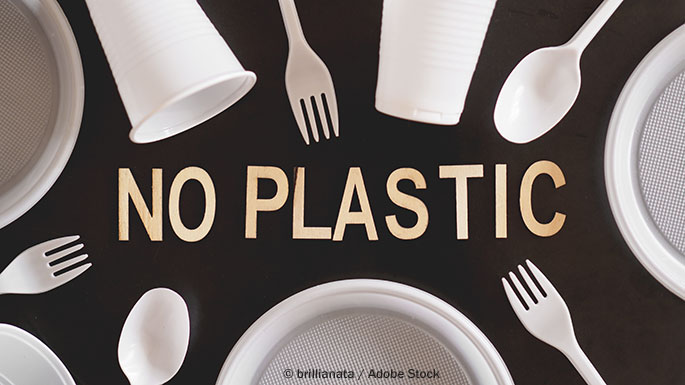
All over the world, humanity has been in a long term relationship with plastic. Since the first fully synthetic plastic was created in 1907, our dependency on the cheap, lightweight material has increased exponentially. While the state of things today makes it nearly impossible to completely cut plastic out your life, there are substitutes for the plastics you’re probably using on a daily basis. Here are a few ways on how to stop using plastic and break up with the material that doesn’t break down.
Where do your leftovers go? There’s a good chance your answer is into a plastic container or wrapped up in plastic wrap. Here is a great place to make a change. Ever heard of bee’s wax wraps? These food wraps work just like plastic wrap (often better) only they’re washable and can be used over and over. Once they do wear out, which is usually about a year, they are completely biodegradable. As for containers, plastic once again flaunts its popularity. While plastic containers are usually reusable, they can be harmful to your health. Plastics contain chemicals like BPA which can leach into your food or water. Even if your plastic container is BPA free, studies have found that there are still other harmful chemicals released. Even if one is indifferent to this fact, there’s still the part where plastic sometimes melts in the microwave or dishwasher, stains, and is just generally not all that durable. Consider going with glass. Glass is far more durable, won’t leach toxins into your food, and often can be put in the oven! There is one thing to keep in mind if you decide to take this route. Sometimes glass, like everything else, breaks. If this happens: Recycle! Recycle! Recycle! While glass is non-toxic to the environment, it does take quite a long time to break down.
Another place that we tend to produce a large amount of our plastic waste is at the grocery store. There are 100 billion plastic bags used in the US each year. Consider choosing reusable canvas shopping bags instead. Not only are you helping the environment, but you’re also making your own life easier. There’s a good chance you’ve had a plastic bag split open and watched your groceries tumble to the ground. This is much less likely with a sturdy reusable bag. Not to mention, many stores have begun to offer a small discount if you have your own bags. You can reduce your carbon footprint even further with your shopping habits by investing in reusable produce bags.
These are just a few small changes you can make in your day-to-day to break up with plastic. According to the EPA “…plastics are found in all major MSW categories, the containers and packaging category has the most plastic tonnage at over 14 million tons in 2015.” It is statistics such as these that make it impossible to ignore the impact of the tremendous amount of waste we create. Everyone can help to change this, but how? Stop using single-use plastics, choose biodegradable options, or facilitate recycling resources in your office or business. We can all do our part to reduce, reuse and recycle.




































































































































 Three Ways to Engage Teams and Clients to Maximize Your Recycling Program Engagement
Three Ways to Engage Teams and Clients to Maximize Your Recycling Program Engagement  How to Integrate Accessibility Into Your Sustainability Planning
How to Integrate Accessibility Into Your Sustainability Planning  Why Park Benches Can Promote Workplace Well-Being
Why Park Benches Can Promote Workplace Well-Being 
